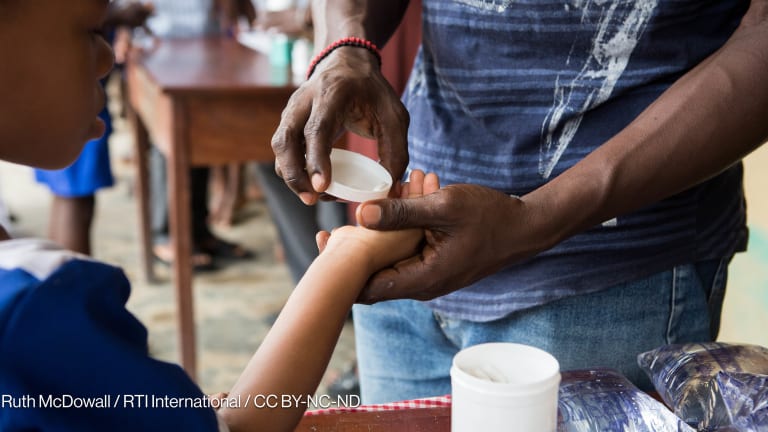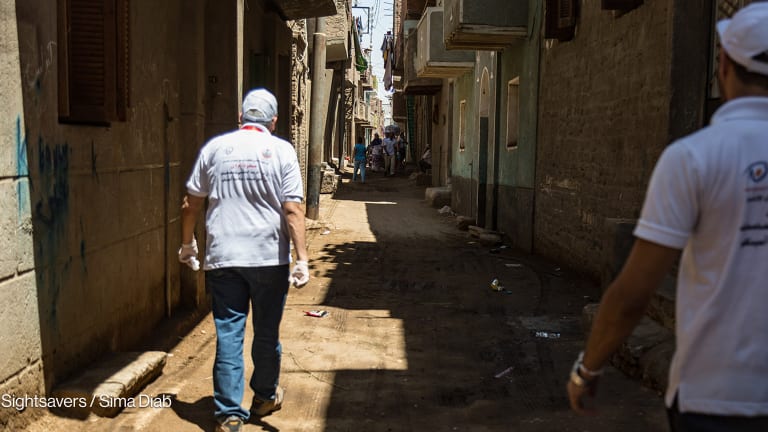
NAIROBI — New research from Uganda found that asymptomatic, school-aged children can serve as superspreaders of malaria. These findings suggest that efforts to eliminate the disease from countries might be harder than previously thought.
The findings, which were presented at the annual meeting of the American Society of Tropical Medicine & Hygiene on Wednesday, indicated that certain children, aged 5 to 15, can serve as reservoirs to keep the parasite circulating locally in a community.
“What if the biggest source of parasites is a group of people who never show any signs of getting sick?”
— Teun Bousema, malaria epidemiologist, Radboud University Medical Center“We now have the first direct evidence that even in places under very intensive malaria control, a small number of asymptomatic super spreaders can quietly sustain transmission — and finding and treating them could prove very challenging,” said lead author Chiara Andolina, a malaria expert at Radboud University Medical Center in the Netherlands, in a press release.
Researchers believe introducing new options for fighting the disease, such as regular screening of school children or treating them with antimalarial drugs, may help to curb transmission through these superspreaders.
The research took place over two years in an area where infections dropped dramatically because of intense malaria control efforts, including the distribution of insecticide-treated bed nets, indoor spraying, and the use of malaria drugs. More than 500 people were tested regularly for the presence of the malaria parasites and then their blood was fed to mosquitoes bred by the researchers.
Researchers found that four children were linked to 60% of the infected mosquitoes studied. One child had seven variations of the parasite in their blood and was responsible for a quarter of the infected mosquitoes.
Clues in the eyes can stop the misdiagnosis of cerebral malaria
It's not uncommon for health workers in African nations where cerebral malaria is widespread to diagnose it wrong. But retinal scans can help to better diagnose this disease, and artificial intelligence could make this strategy more accessible.
Malaria parasites thrive on a consistent transfer between humans and mosquitoes. But even when someone has the parasite in their blood, it doesn’t necessarily mean that they are effectively transmitting the parasite to mosquitoes, Teun Bousema, a malaria epidemiologist at Radboud University Medical Center and the study’s principal author, told Devex.
Some of the factors for effective transmission include the density of the parasite in a person’s blood and whether a person is able to harbor parasites that are fit enough to make the transfer to a mosquito. It is also believed that people that are immune to the disease but still carry the parasite tend to transmit it more effectively than those that become ill.
Researchers are still investigating what makes these superspreader individuals unique, but suspect these children have some level of immunity and that they have the parasite in their blood for long periods of time, Bousema said.
“Finding these superspreaders is super important. Any intervention that would miss the super spreaders or some of these superspreaders, in a way, is doomed to fail,” he said.
There are also concerns that infections could rebound quickly in situations where control efforts falter — such as in cases where funding for control measures runs out.
“Some have argued that when transmission is very low and treatment is available, you can relax somewhat — because most new infections will produce symptoms and patients will come to clinics for medicines. But what if the biggest source of parasites is a group of people who never show any signs of getting sick?” Bousema said.
Identifying these outliers and treating them is costly and time-consuming. Diagnostic tools don’t always pick up the presence of the parasite in a person, because the density of the parasites can spike in a person’s blood at different times.
But these findings present new options for fighting the disease, he said. Countries can target schools more directly in elimination campaigns. This could include regular screenings of the children for the parasite, such as every four weeks. Another option could be treating all school children in a community with antimalarial drugs.
“I'm convinced it will not eliminate malaria to only kill the parasites in school children. But you get a lot of bang for your buck if you invest in getting school children parasite free,” he said.








